[:en]
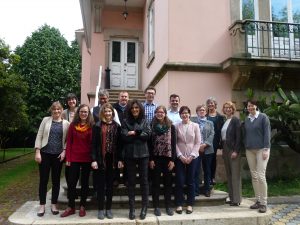
Lucrècia Keim i Àngels Pinyana han assistit a la tercera reunió transnacional del projecte europeu CONNECT 2.0, que s’ha celebrat a Porto els dies 11 i 12 de maig. La UVic-UCC participa des del GRAC (L.Keim, À.Pinyana, M.Vancells, M.Dalda) i el GRELL (À.Raluy).
CONNECT 2.0 és un projecte finançat per la Unió Europea que té per objecte promoure i reforçar les competències interculturals dels estudiants que participen en programes d’estudi i de pràctiques ERASMUS+.
Els estudiants que segueixin la formació creada en aquest projecte rebran una certificació que validarà la seva destresa internacional. Per aconseguir-la, hauran de prendre part en un curset presencial de sensibilització intercultural abans de la seva estada internacional, i un de reflexió, a la tornada, ambdós impartits a la seva pròpia universitat. Durant l’estada, en canvi, seguiran la seva formació a distància gràcies als materials on-line desenvolupats pels membres del projecte.
Però no només això, els estudiants que hagin seguit tot el programa (abans, durant i després de l’estada Erasmus) podran rebre, encara, una formació més intensa per esdevenir Mentors interculturals, és a dir, obtenir el reconeixement per ser formadors d’altres estudiants que gaudeixin d’estades internacionals en anys posteriors.
A la intensa reunió de Porto es van discutir els continguts dels cursets de sensibilització i reflexió presencials pre i post estada, i els continguts del currículum online. Bona part de la reunió també va tractar sobre els advisors, encarregats d’impartir els cursos presencials, i la formació que rebran a Poznán (Polònia) a principis de juny d’enguany. Finalment, es va avaluar la progressió del projecte i es van marcar les pautes per aconseguir que, a juny del 2018, es compleixin amb bona nota tots els objectius plantejats el 2016.
A més de la UVic-UCC, les altres universitats que participen a CONNECT 2.0 són Adam Mickiewicz University Poznán (Polònia), Friedrich-Schiller-Universität Jena (Alemanya), Haaga-Helia University of Applied Sciences (Finlàndia), Karlshochschule International University (Alemanya), University of Limerick (Irlanda), University Fernando Pessoa (Portugal), University of Urbino (Itàlia), coordinades per InterCultur gGmbH, sucursal de AFS Interkulturelle Begegnungen e.V.[:ca]

Lucrècia Keim i Àngels Pinyana han assistit a la tercera reunió transnacional del projecte europeu CONNECT 2.0, que s’ha celebrat a Porto els dies 11 i 12 de maig. La UVic-UCC participa des del GRAC (L.Keim, À.Pinyana, M.Vancells, M.Dalda) i el GRELL (À.Raluy).
CONNECT 2.0 és un projecte finançat per la Unió Europea que té per objecte promoure i reforçar les competències interculturals dels estudiants que participen en programes d’estudi i de pràctiques ERASMUS+.
Els estudiants que segueixin la formació creada en aquest projecte rebran una certificació que validarà la seva destresa internacional. Per aconseguir-la, hauran de prendre part en un curset presencial de sensibilització intercultural abans de la seva estada internacional, i un de reflexió, a la tornada, ambdós impartits a la seva pròpia universitat. Durant l’estada, en canvi, seguiran la seva formació a distància gràcies als materials on-line desenvolupats pels membres del projecte.
Però no només això, els estudiants que hagin seguit tot el programa (abans, durant i després de l’estada Erasmus) podran rebre, encara, una formació més intensa per esdevenir Mentors interculturals, és a dir, obtenir el reconeixement per ser formadors d’altres estudiants que gaudeixin d’estades internacionals en anys posteriors.
A la intensa reunió de Porto es van discutir els continguts dels cursets de sensibilització i reflexió presencials pre i post estada, i els continguts del currículum online. Bona part de la reunió també va tractar sobre els advisors, encarregats d’impartir els cursos presencials, i la formació que rebran a Poznán (Polònia) a principis de juny d’enguany. Finalment, es va avaluar la progressió del projecte i es van marcar les pautes per aconseguir que, a juny del 2018, es compleixin amb bona nota tots els objectius plantejats el 2016.
A més de la UVic-UCC, les altres universitats que participen a CONNECT 2.0 són Adam Mickiewicz University Poznán (Polònia), Friedrich-Schiller-Universität Jena (Alemanya), Haaga-Helia University of Applied Sciences (Finlàndia), Karlshochschule International University (Alemanya), University of Limerick (Irlanda), University Fernando Pessoa (Portugal), University of Urbino (Itàlia), coordinades per InterCultur gGmbH, sucursal de AFS Interkulturelle Begegnungen e.V.[:es]

Lucrècia Keim i Àngels Pinyana han assistit a la tercera reunió transnacional del projecte europeu CONNECT 2.0, que s’ha celebrat a Porto els dies 11 i 12 de maig. La UVic-UCC participa des del GRAC (L.Keim, À.Pinyana, M.Vancells, M.Dalda) i el GRELL (À.Raluy).
CONNECT 2.0 és un projecte finançat per la Unió Europea que té per objecte promoure i reforçar les competències interculturals dels estudiants que participen en programes d’estudi i de pràctiques ERASMUS+.
Els estudiants que segueixin la formació creada en aquest projecte rebran una certificació que validarà la seva destresa internacional. Per aconseguir-la, hauran de prendre part en un curset presencial de sensibilització intercultural abans de la seva estada internacional, i un de reflexió, a la tornada, ambdós impartits a la seva pròpia universitat. Durant l’estada, en canvi, seguiran la seva formació a distància gràcies als materials on-line desenvolupats pels membres del projecte.
Però no només això, els estudiants que hagin seguit tot el programa (abans, durant i després de l’estada Erasmus) podran rebre, encara, una formació més intensa per esdevenir Mentors interculturals, és a dir, obtenir el reconeixement per ser formadors d’altres estudiants que gaudeixin d’estades internacionals en anys posteriors.
A la intensa reunió de Porto es van discutir els continguts dels cursets de sensibilització i reflexió presencials pre i post estada, i els continguts del currículum online. Bona part de la reunió també va tractar sobre els advisors, encarregats d’impartir els cursos presencials, i la formació que rebran a Poznán (Polònia) a principis de juny d’enguany. Finalment, es va avaluar la progressió del projecte i es van marcar les pautes per aconseguir que, a juny del 2018, es compleixin amb bona nota tots els objectius plantejats el 2016.
A més de la UVic-UCC, les altres universitats que participen a CONNECT 2.0 són Adam Mickiewicz University Poznán (Polònia), Friedrich-Schiller-Universität Jena (Alemanya), Haaga-Helia University of Applied Sciences (Finlàndia), Karlshochschule International University (Alemanya), University of Limerick (Irlanda), University Fernando Pessoa (Portugal), University of Urbino (Itàlia), coordinades per InterCultur gGmbH, sucursal de AFS Interkulturelle Begegnungen e.V.[:]
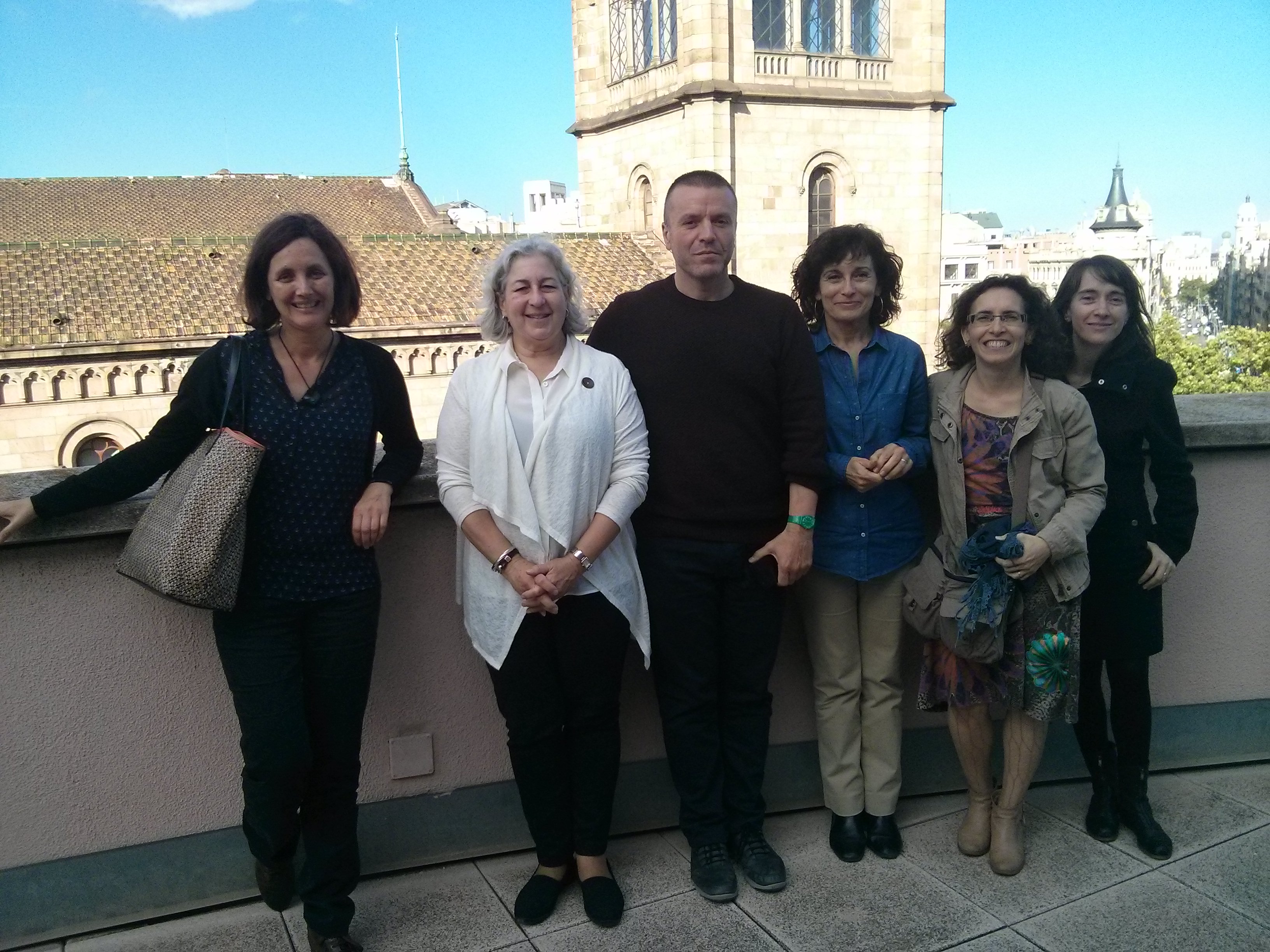 [:]
[:]
 23 April 2016 was the central date of a year of literary celebrations around the 400th anniversary of the deaths of two of Europe’s most celebrated writers, Cervantes and Shakespeare. From a cultural and intercultural point of view it would be hard to think of anybody more influential than these two gentlemen, both in their sources and legacy. Shakespeare plundered many of the stories and legends of medieval Europe and gave them new currency, often giving rise to what we now think of as the definitive versions, whether it be the tragic love of
23 April 2016 was the central date of a year of literary celebrations around the 400th anniversary of the deaths of two of Europe’s most celebrated writers, Cervantes and Shakespeare. From a cultural and intercultural point of view it would be hard to think of anybody more influential than these two gentlemen, both in their sources and legacy. Shakespeare plundered many of the stories and legends of medieval Europe and gave them new currency, often giving rise to what we now think of as the definitive versions, whether it be the tragic love of  It is believed that Shakespeare adapted the story of Cardenio, based on an episode in Cervantes’s
It is believed that Shakespeare adapted the story of Cardenio, based on an episode in Cervantes’s 
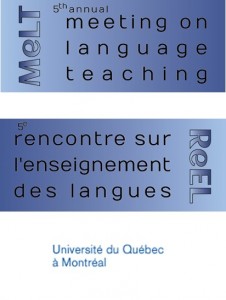
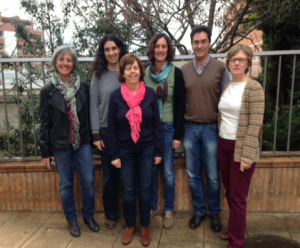
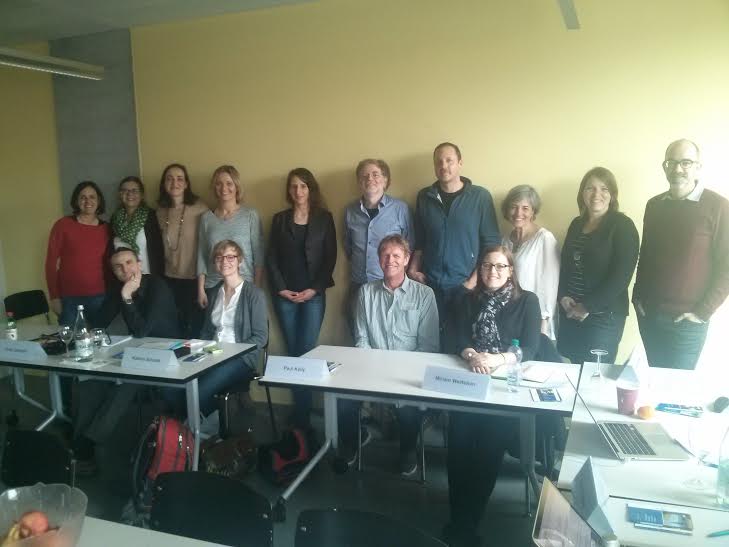
 A new book, Persuasion in Public Discourse: Cognitive and Functional Perspectives, will be published very soon by John Benjamins Publishing Company within the prominent series “Discourse Approaches to Politics, Society and Culture”. The editors are
A new book, Persuasion in Public Discourse: Cognitive and Functional Perspectives, will be published very soon by John Benjamins Publishing Company within the prominent series “Discourse Approaches to Politics, Society and Culture”. The editors are 